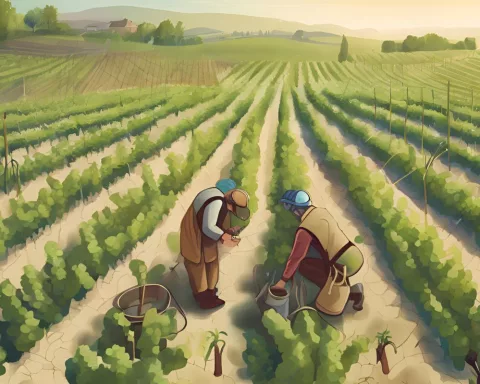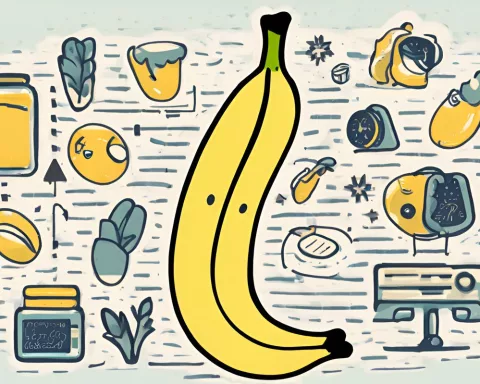Cape Town is leading the way in tackling South Africa’s energy crisis by introducing new regulations for alternative energy sources. The city’s mandate requires homes and businesses to adhere to an approved list of inverters to ensure safety, quality, and efficiency in the sector. The move towards embracing alternative power solutions positions Cape Town at the forefront of a greener and more sustainable future, setting an example for other cities grappling with similar challenges. As the world moves towards a more environmentally conscious future, Cape Town’s proactive approach to addressing its energy challenges is a testament to the city’s resilience and adaptability.
Cape Town’s Response to Energy Crisis
Nestled at the southern tip of Africa, the picturesque city of Cape Town is making significant strides to tackle the ongoing energy crisis in South Africa. With the underperformance of power utility Eskom prompting residents to seek alternative sources of energy for their homes and businesses, the city’s administration has introduced new regulations to ensure safety, quality, and efficiency in this rapidly evolving sector.
Effective from 1 October, the City of Cape Town’s mandate requires households and businesses planning to install alternative energy sources to adhere to their approved list of inverters. This initiative is intended to tackle concerns over substandard quality and improper wiring by unscrupulous operators, which could result in extended outages during load-shedding periods.
As Cape Town residents grapple with the uncertainties of Eskom’s power supply, the city’s administration has taken a proactive approach by not only regulating the sector but also facilitating the adoption of alternative energy systems. The regulation applies to solar photovoltaic (PV) and battery systems integrated into a building’s electrical wiring. Furthermore, it encompasses setups using inverters without solar panels connected to a distribution board. However, trolley inverters designed to plug into wall sockets are exempt from this regulation, as they are classified as appliances.
Streamlining Solar PV System Registration Process
The introduction of this regulation is anticipated to streamline the solar PV system registration process, which has been hindered by delays due to the high volume of applications and a diverse array of system types. The City’s administration has identified a significant number of existing systems that utilize non-approved inverters, which are often improperly wired, posing safety hazards and compromising network integrity. This multitude of unique wiring configurations has created a challenging task for the City’s professionals during the registration process. The simplification of these configurations should accelerate the process and improve safety standards.
To further expedite authorization approvals, the City plans to increase its staff capacity for application processing and is currently developing an online application portal. Although applications submitted before October will still be processed, the City has declared that priority will be given to grid-tied systems using inverters from their approved list.
Embracing Alternative Power Solutions Amid Challenges
The City of Cape Town’s regulations come at a pivotal moment, as the metropolis continues to grapple with the challenges posed by an unreliable national power grid. The increased adoption of alternative energy sources not only alleviates pressure on the aging infrastructure but also contributes to the city’s efforts to reduce its carbon footprint and promote environmentally sustainable practices.
Cape Town has historically been a hub for innovation, creativity, and progress. Its rich artistic heritage, encompassing centuries and various cultural influences, has shaped the city’s unique architectural and design landscape. The move towards embracing alternative power solutions echoes this spirit of innovation and adaptability, positioning Cape Town at the forefront of a greener and more sustainable future.
As the city’s residents and businesses continue to explore alternative power solutions, it is essential to recognize the role of the City’s administration in fostering a conducive environment for this transition. The introduction of regulations and streamlined processes not only ensures the safety and quality of these systems but also demonstrates the city’s commitment to embracing the benefits of renewable energy.
The City of Cape Town’s efforts serve as an example to other cities and municipalities grappling with similar challenges, showcasing the potential benefits of adopting alternative power solutions and the importance of effective regulation in facilitating this transition. As the world moves towards a more sustainable and environmentally conscious future, Cape Town’s proactive approach to addressing its energy challenges is a testament to the city’s resilience and adaptability.
With the stunning Table Mountain as its backdrop, Cape Town is well on its way to becoming a trailblazer in the realm of alternative power solutions. The city’s efforts to embrace renewable energy sources and promote sustainable practices are commendable, setting an example for the rest of the continent and beyond. As the world confronts the realities of climate change and limited resources, Cape Town serves as a beacon of hope that resilience, innovation, and adaptability can pave the way for a brighter future.
1. What is Cape Town’s response to the energy crisis in South Africa?
Cape Town is introducing new regulations for alternative energy sources to tackle the energy crisis in South Africa. The city’s mandate requires homes and businesses to adhere to an approved list of inverters to ensure safety, quality, and efficiency in the sector.
2. When do the new regulations take effect?
The new regulations take effect from October 1.
3. What alternative energy sources do the regulations apply to?
The regulations apply to solar photovoltaic (PV) and battery systems integrated into a building’s electrical wiring, as well as setups using inverters without solar panels connected to a distribution board.
4. What is the aim of the regulations?
The aim of the regulations is to tackle concerns over substandard quality and improper wiring by unscrupulous operators, which could result in extended outages during load-shedding periods.
5. How will the regulations streamline the solar PV system registration process?
The regulations are anticipated to streamline the solar PV system registration process by simplifying the wiring configurations, which has been a challenging task due to the high volume of applications and diverse array of system types.
6. What is the City of Cape Town doing to expedite authorization approvals?
The City of Cape Town is increasing its staff capacity for application processing and is currently developing an online application portal to further expedite authorization approvals.
7. What benefits does the increased adoption of alternative energy sources bring?
The increased adoption of alternative energy sources not only alleviates pressure on the aging infrastructure but also contributes to the city’s efforts to reduce its carbon footprint and promote environmentally sustainable practices.
8. What does Cape Town’s proactive approach to addressing its energy challenges demonstrate?
Cape Town’s proactive approach to addressing its energy challenges demonstrates the city’s resilience and adaptability, setting an example for other cities and municipalities grappling with similar challenges.








